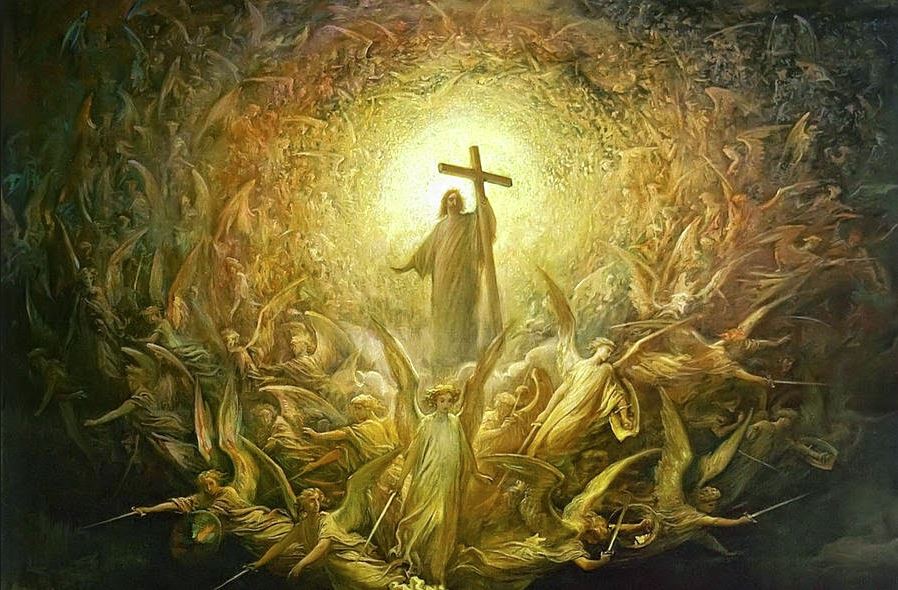
by Fr. Jonathan Cholcher
The concept of morality comes from the Latin word “mos” (pl., mores), meaning “will, or inclination,” as to comply with one’s wishes, or to humor someone. The concept of morality applies especially to how the will, or inclination, of individuals or a group takes shape as customary usages, regular practices, and laws which define such accepted practices. The analogous Greek term is “ethos,” from which we have the concept of ethics, or ethical behavior. The opposite concepts are immoral (lit., contrary to moral standards), amoral (lit., without moral standards), or unethical.
The very concept of morality would seem to be individualistic, if it, in fact, is determined by an individual person’s will, or inclination. However, throughout the history of civilization, the basic premise of morality is a shared, or common, will resulting in common usages, practices, and laws describing acceptable behavior. This is true of the ancient Jews, Egyptians, Hindus, Chinese, Babylonians, Greeks, Romans, Meso-Americans, and the Norse. The Roman playwright Terence declared in one of his plays: “I am a man: nothing human is alien to me.”
C.S. Lewis summarized this reality well. “This thing which I have called for convenience the Tao (lit., “way”), and which others may call Natural Law or Traditional Morality or the First Principles or Practical Reason or the First Platitudes, is not one among a series of possible systems of value. It is the sole source of all value judgements…There has never been, and never will be, a radically new judgement of value in the history of the world…The human mind has no more power of inventing a new value than of imagining a new primary colour, or, indeed, of creating a new sun and a new sky for it to move in.” (“The Abolition of Man,” chapter 2)
Only in very recent history – the past 100-150 years – has the long-practiced concept of shared morality come under attack, along with the dismantling of common codes of right and wrong, good and bad character. The attack comes from persons who value individualism above every other value, something one author called hyper-individualism. The German Friedrich Nietszche (d. 1900) called it being an Ubermensch, a superman who could revaluate all values according to one’s liking in order to stand apart from and above the complacent herd of humanity. According to such reasoning, the definition of what is “right” is determined by the individual and to what extent the individual can enforce that distinction upon others.
Needless to say, the loss of morality to individualism has resulted in the breakdown of human society at every level, simply because the loss of morality is unnatural. Human beings are designed to live not in isolation, but in community. The human person is either male or female, designed to live with his or her complement as created. Male values co-exist with female values in collaboration, and the two are shown to be wonderfully unique in their complementarity. Couples produce children, a common home, and live in families. Families form communities, and communities form nations. Whole nations can relate to each other precisely because at root they share the same nature, the same morality.
Morality expresses natural, healthy human interaction and co-existence. Morality is the code of behaviors conducive to a properly functioning human society. Morality, ultimately, is what everyone wants, if everyone is trying to be truly human.
Orthodox Morality is the pinnacle of expression of the fact that morality has been remarkably consistent throughout human history, across almost every cultural line. According to Orthodox teaching, every human being is created “in the image and likeness” of God (Gen. 1:26); therefore, the foundation of human existence is to be a reflection of the will of God, growing ever closer to likeness with God according to His design. Whether a person believes in God or not, their basic nature remains the same and retains a moral sense.
After describing how sinful human beings depart from natural usage into self-chosen vice, the Apostle Paul writes: “Gentiles (non-Jews) who do not have the law (the written, Old Testament code), by nature do the things in the law, these, although not having the law, are a law to themselves, who show the work of the law written in their hearts, their conscience also bearing witness, and between themselves their thoughts accusing or else excusing them” (Rom. 2:14-15).
Orthodox Morality affirms basic natural human morality in its clearest expression according to the design and will of God the Creator. Even more, Orthodox Morality rests on the fact that God became a human being in the Person of Jesus Christ our Savior. In becoming Man, God restores morality in His own Person, by how He acts, how He speaks, how He teaches, and how He conquers death in His crucifixion, Resurrection, and ascension to the right hand of the Father.
The first man, Adam, asserted his individuality and broke communion with God by disobeying God and lapsing into self-chosen immorality (Gen. 3; Rom. 5:12f.); this resulted in death, division, and every manner of vice for all descended from Adam who remain in this fallen state. The last, or second, Adam, Jesus Christ perfectly accomplished the will of the Father restoring fallen humanity to communion with God in obedience and freedom of godliness (Jn. 6:37-40; 1 Cor. 15:46-49); this resulted in life, peace, and every manner of virtue in all who are children of God in Christ Jesus.
Orthodox Morality is more than just a moral code of written laws binding on all people. Orthodox Morality is the renovation of the human person from the inside out, a new spiritual way of living prompted by the Spirit of Christ Himself. The law of God is “written in our hearts…by the Spirit of the living God” (2 Cor. 3:2-3; Ez. 36:26-27), causing us to have a purified conscience, a basic sense of right and wrong according to the will of God, and a love of God and one another in purity of life. The center, or hinge, of Orthodox Morality is the act of prayer, or worship, of God in communion with the faithful and all the saints, for this is both the source and goal of a genuine, moral human way of life.
